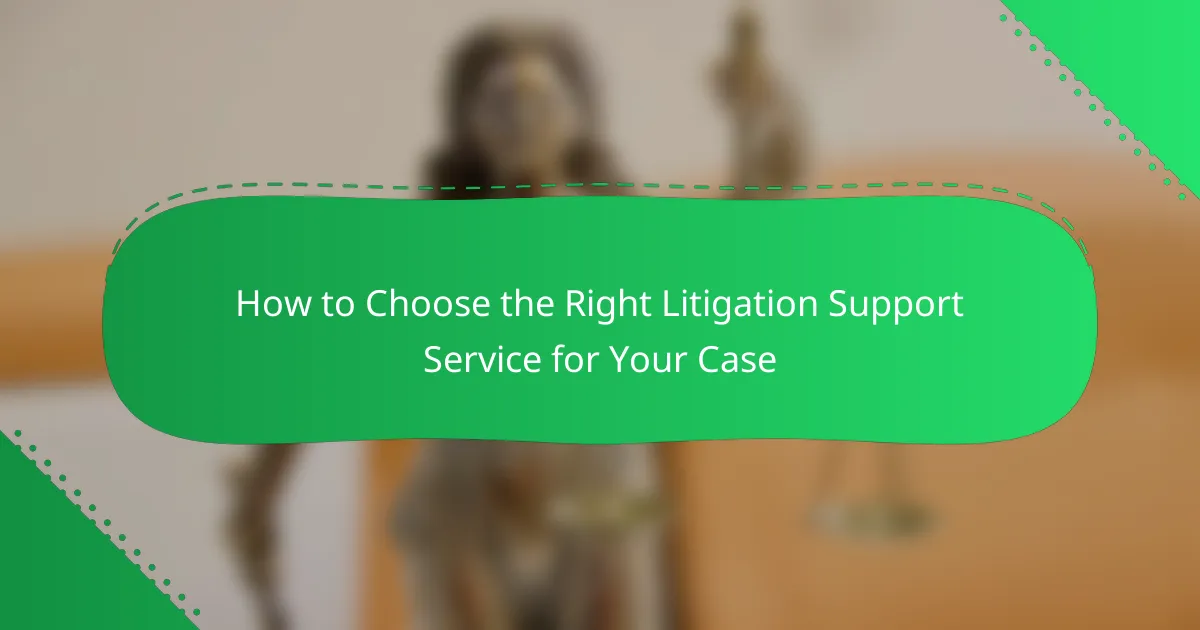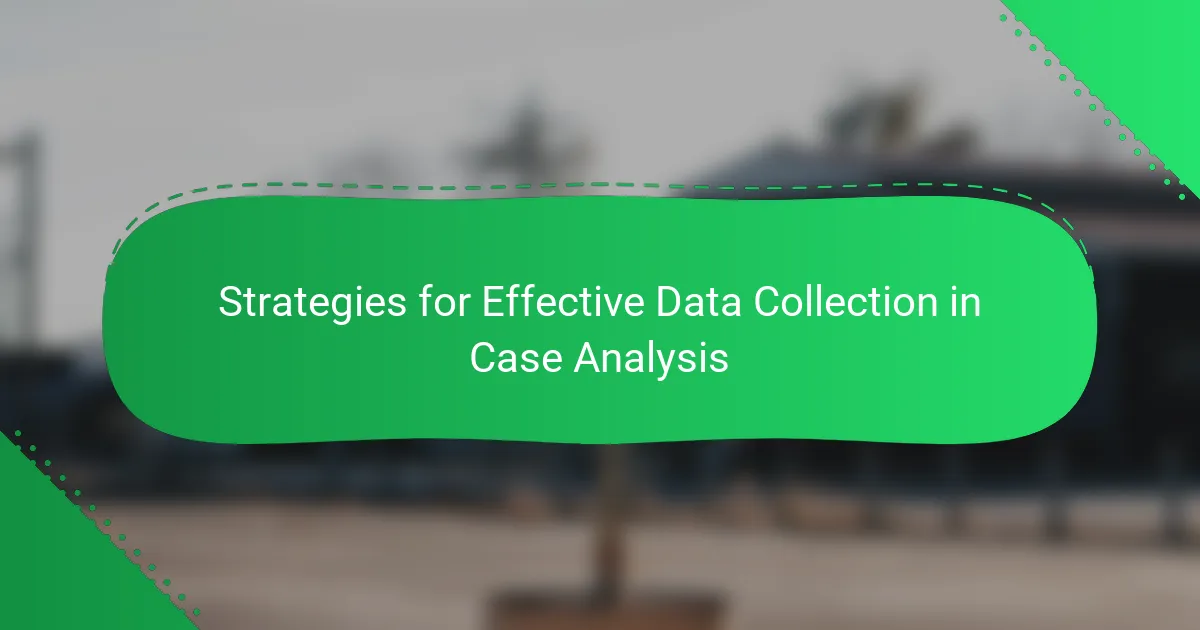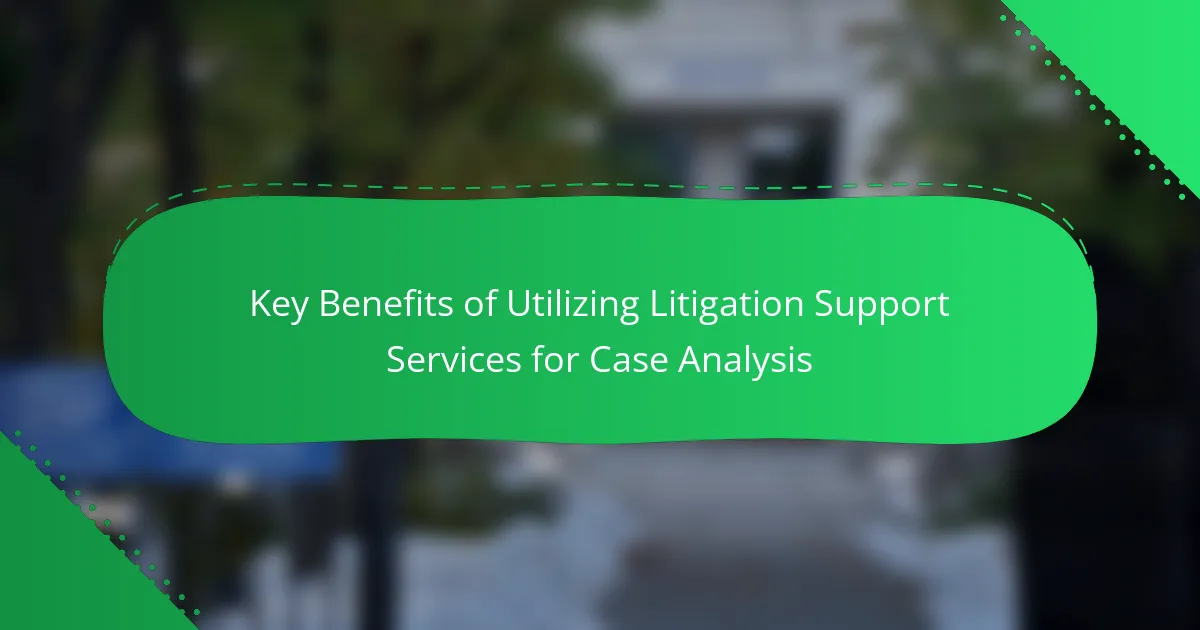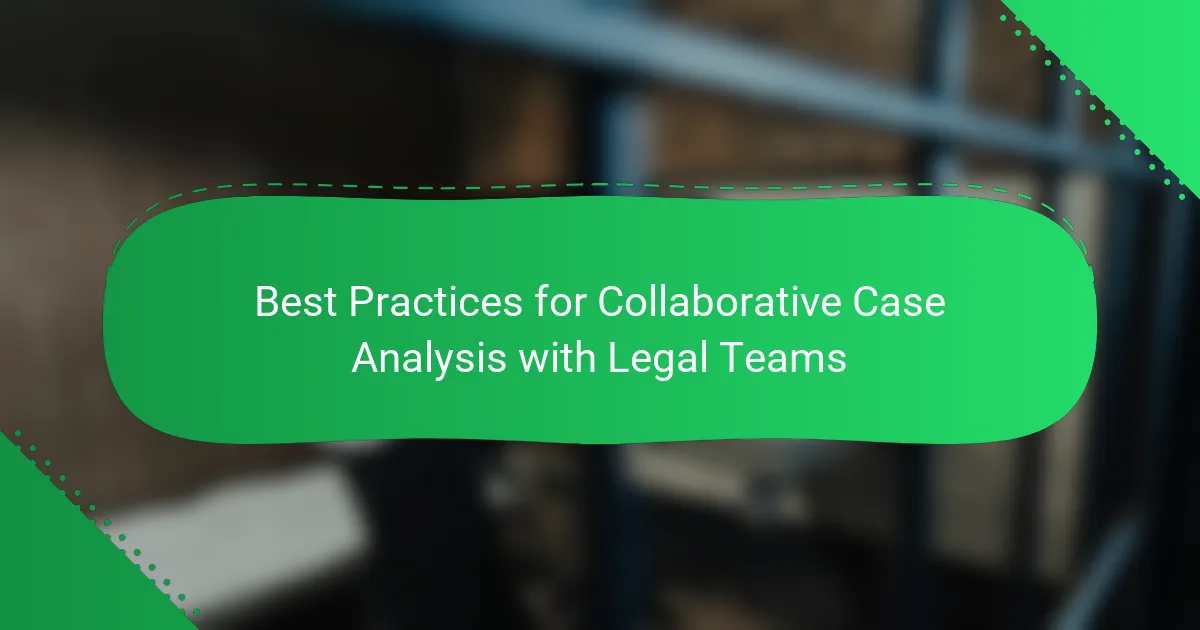Litigation support services assist legal professionals throughout the litigation process, encompassing document management, e-discovery, trial presentation, and expert witness support. These services enhance case preparation efficiency and can lead to significant cost savings for law firms. To choose the right litigation support service, it is essential to assess specific case requirements, including complexity, evidence types, and budget constraints. Establishing clear communication and collaboration with the chosen service provider is crucial for achieving successful outcomes, as effective communication has been shown to positively influence case results.
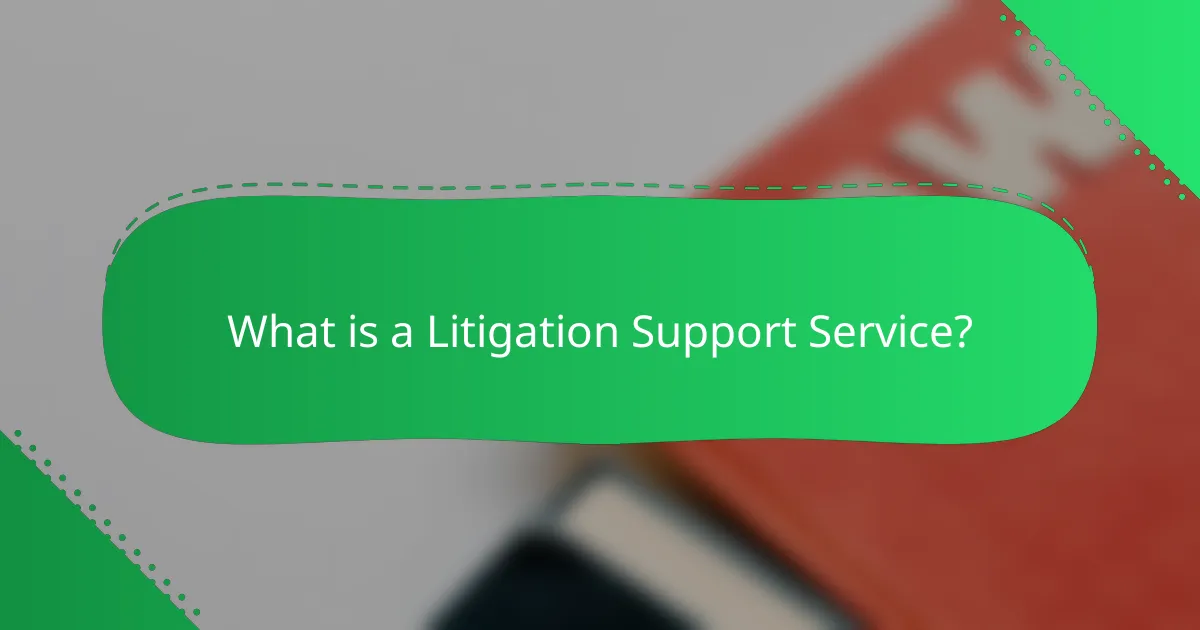
What is a Litigation Support Service?
A litigation support service provides assistance to legal professionals during the litigation process. These services can include document management, e-discovery, trial presentation, and expert witness support. Litigation support services help streamline case preparation and improve efficiency. They often utilize technology to manage large volumes of data. This efficiency can lead to cost savings for law firms. According to a study by the American Bar Association, effective litigation support can significantly impact case outcomes.
How does a Litigation Support Service function in legal cases?
A Litigation Support Service assists legal professionals by providing specialized resources. These services include document management, e-discovery, and trial preparation. They help organize and analyze case-related information efficiently. Litigation support teams often utilize technology to streamline processes. This can involve software for data analysis and case management. They also provide expert testimony and consulting services when necessary. Their role is crucial in ensuring that attorneys can present their cases effectively. The use of litigation support can lead to improved case outcomes and efficiency in legal proceedings.
What are the key roles of a Litigation Support Service?
Litigation Support Services play essential roles in the legal process. They assist attorneys in managing case-related information and documents. This includes organizing evidence and maintaining case files. They also provide technology solutions for data analysis and document review. Additionally, they help with trial preparation and presentation. Litigation Support Services often offer expert testimony regarding technical matters. Their contributions enhance the efficiency and effectiveness of legal proceedings. According to the American Bar Association, effective litigation support can lead to better case outcomes.
How does technology enhance the effectiveness of Litigation Support Services?
Technology enhances the effectiveness of Litigation Support Services by improving data management and analysis. Advanced software allows for efficient organization of case documents. This includes indexing, searching, and retrieving information quickly. Technology also facilitates better communication among legal teams. Real-time collaboration tools enable instant updates and feedback. Additionally, data analytics can identify patterns and trends in case law. This insight supports more strategic decision-making. Moreover, technology reduces the time and costs associated with manual processes. Studies show that firms using technology in litigation support see increased productivity. These improvements lead to more favorable outcomes for clients.
What types of Litigation Support Services are available?
Litigation support services include various types designed to assist legal professionals. These services encompass document management, e-discovery, and trial consulting. They also include expert witness services, case management, and legal research. Additionally, litigation support may involve transcription services and technology solutions. Each type aims to enhance the efficiency and effectiveness of legal proceedings. For instance, e-discovery services help in collecting and analyzing electronic data. Document management services organize case files for easy access. Overall, these services are crucial for successful litigation outcomes.
What are the primary categories of Litigation Support Services?
The primary categories of Litigation Support Services include document management, e-discovery, expert witness services, and trial support. Document management involves organizing and maintaining case-related documents. E-discovery refers to the identification, collection, and review of electronic data. Expert witness services provide specialized knowledge to support case arguments. Trial support encompasses assistance with trial preparation, logistics, and presentation. Each category plays a crucial role in enhancing the efficiency and effectiveness of legal proceedings.
How do different types of services cater to various legal needs?
Different types of services cater to various legal needs by providing specialized support tailored to specific legal contexts. For instance, litigation support services focus on assisting attorneys during trials and hearings. These services include document management, evidence organization, and trial presentation support.
Corporate legal services address the needs of businesses, offering contract review, compliance guidance, and risk management. Family law services provide mediation and representation in divorce, custody, and adoption cases.
Criminal defense services specialize in protecting the rights of individuals accused of crimes, ensuring legal representation and guidance throughout the judicial process. Each service type aligns with distinct legal requirements, ensuring clients receive relevant expertise and support.
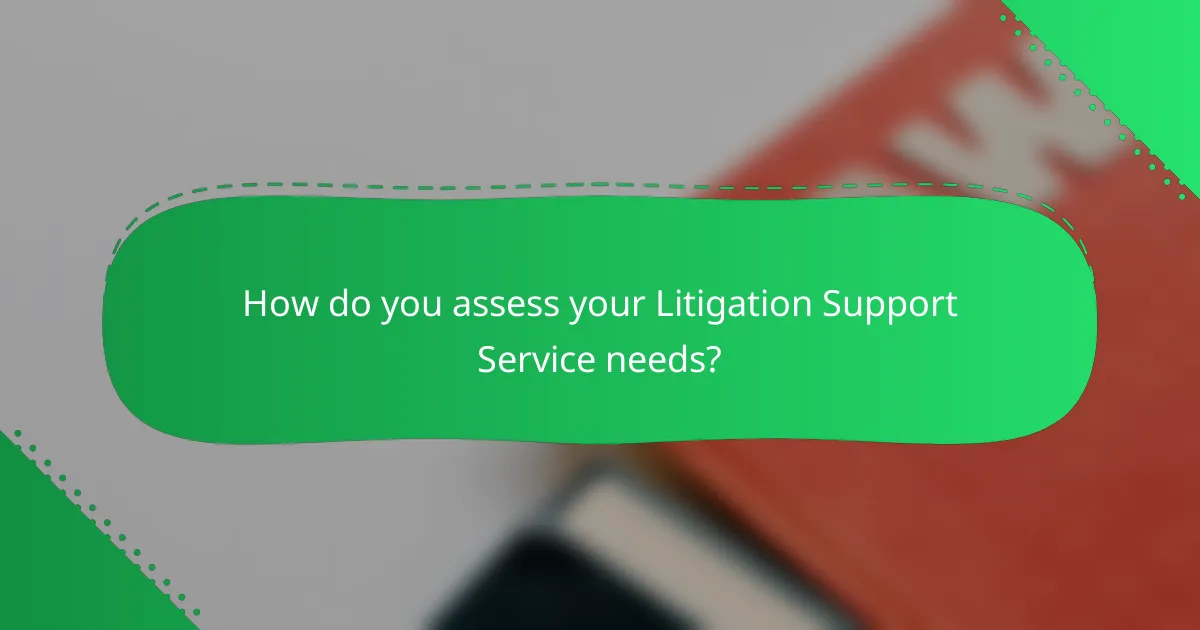
How do you assess your Litigation Support Service needs?
To assess your Litigation Support Service needs, begin by identifying the specific requirements of your case. Evaluate the complexity of the case and the types of evidence involved. Determine if you need services such as document management, e-discovery, or trial presentation. Consider the expertise required, including technical skills and legal knowledge. Analyze your budget constraints and the urgency of your timeline. Consult with legal professionals to gain insights into necessary support. Review past cases similar to yours for guidance on required services. This structured approach ensures you accurately identify your litigation support needs.
What factors should you consider when choosing a Litigation Support Service?
When choosing a Litigation Support Service, consider their expertise and experience in your specific legal area. This ensures they understand the nuances of your case. Evaluate their technology and tools for document management and data analysis. Advanced technology can streamline processes and improve efficiency. Assess their responsiveness and communication skills. Timely updates and clear communication are vital throughout the litigation process. Check their reputation and client reviews. Positive feedback from previous clients indicates reliability and quality service. Consider their pricing structure and transparency. Clear pricing helps avoid unexpected costs. Finally, ensure they can provide customized services tailored to your case needs. Tailored support can significantly enhance case outcomes.
How does the complexity of your case influence your choice?
The complexity of your case significantly influences your choice of litigation support service. Complex cases often require specialized expertise. This includes advanced technical skills, in-depth legal knowledge, and experience with similar cases. For instance, intricate cases may need forensic analysis or data management. Simpler cases might only require basic document preparation and review. The chosen service should align with the specific demands of the case. Selecting the right support can enhance case strategy and outcomes. Therefore, evaluating case complexity is essential for making an informed choice.
What budget considerations should you take into account?
When choosing litigation support services, budget considerations include service fees, scope of services, and potential additional costs. Service fees vary based on the complexity of the case and the expertise required. The scope of services should align with specific case needs to avoid unnecessary expenses. Additional costs may arise from unforeseen requirements, such as expert witness fees or extended timelines. A clear understanding of these factors helps in accurate budgeting and prevents overspending.
What questions should you ask potential Litigation Support Service providers?
What questions to ask potential Litigation Support Service providers include inquiries about their experience, expertise, and technology used. Start by asking about their years of experience in the litigation support field. Inquire about specific cases they have handled that are similar to yours. Ask about the qualifications and training of their staff. It’s crucial to understand the types of technology and software they utilize for data management. Confirm their ability to meet deadlines and manage large volumes of data efficiently. Additionally, ask about their security measures for protecting sensitive information. Finally, request references from previous clients to gauge their reliability and effectiveness.
How can you evaluate the experience and expertise of a provider?
To evaluate the experience and expertise of a provider, review their qualifications and track record. Check their education and certifications relevant to litigation support. Analyze their years of experience in the field. Look for specific cases they have worked on that are similar to yours. Assess client testimonials and reviews for insight into their performance. Verify their knowledge of current legal technologies and methodologies. Additionally, consider their professional affiliations with recognized organizations. These factors collectively provide a comprehensive view of a provider’s capabilities.
What specific services should you inquire about during consultations?
Inquire about document management services during consultations. These services help organize and store case-related documents efficiently. Ask about electronic discovery (e-discovery) capabilities. E-discovery services assist in identifying, collecting, and reviewing electronically stored information. Assess whether they offer expert witness services. Expert witnesses provide specialized knowledge to support your case. Confirm if they provide trial presentation services. These services help present evidence effectively in court. Evaluate their capabilities in legal research. Legal research services can strengthen your case by providing relevant precedents. Lastly, inquire about their project management services. Project management ensures that all aspects of the litigation process are coordinated effectively.
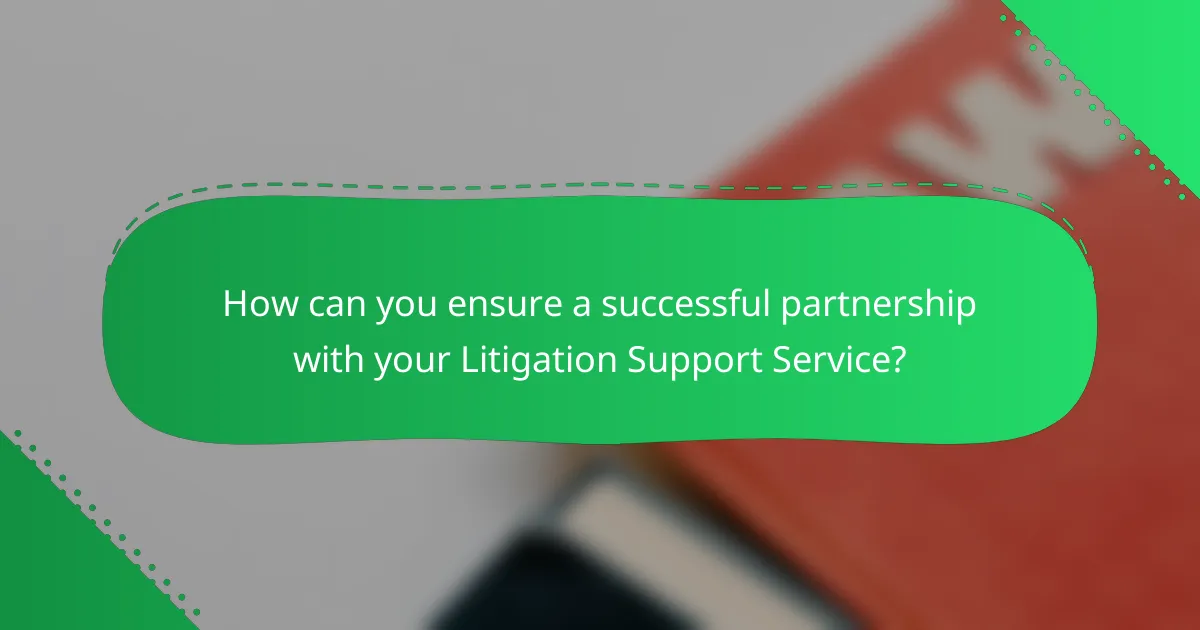
How can you ensure a successful partnership with your Litigation Support Service?
To ensure a successful partnership with your Litigation Support Service, establish clear communication from the start. Define your objectives and expectations explicitly. Regularly review progress and address any issues promptly. Ensure both parties understand the legal requirements and technical specifications involved. Collaborate on timelines and deliverables to avoid misunderstandings. Utilize project management tools to track tasks and milestones. This structured approach enhances accountability and efficiency. A study by the American Bar Association highlights that effective communication significantly improves case outcomes.
What best practices should you follow for effective collaboration?
Effective collaboration requires clear communication, defined roles, and mutual respect among team members. Establishing open lines of communication facilitates sharing of ideas and feedback. Clearly defining roles ensures that everyone understands their responsibilities. Regular check-ins can help track progress and address any issues promptly. Utilizing collaborative tools enhances coordination and document sharing. Setting common goals aligns the team’s efforts and fosters a sense of purpose. Encouraging diverse perspectives can lead to more innovative solutions. Lastly, recognizing and appreciating contributions boosts morale and strengthens team cohesion.
How can clear communication improve your working relationship?
Clear communication enhances working relationships by fostering trust and understanding. It ensures that all parties are on the same page regarding expectations and responsibilities. This alignment reduces misunderstandings and conflicts. Studies show that effective communication can increase team performance by up to 25%. Clear communication also encourages feedback, which is essential for continuous improvement. When team members feel heard, they are more likely to engage and contribute positively. Overall, clear communication creates a collaborative environment that leads to better outcomes in any working relationship.
What should you do to set mutual expectations and goals?
To set mutual expectations and goals, initiate a clear communication process. Discuss the objectives of the litigation support service. Ensure both parties understand their roles and responsibilities. Establish measurable outcomes to track progress. Schedule regular check-ins to assess alignment and address any concerns. Document all agreed-upon expectations and goals for reference. This approach fosters accountability and transparency. Research shows that clear expectations enhance collaboration and effectiveness in legal settings.
What are common pitfalls to avoid when selecting a Litigation Support Service?
Common pitfalls to avoid when selecting a Litigation Support Service include failing to assess the service’s expertise in relevant areas. Many firms may not specialize in the specific type of litigation you require. Ignoring client reviews can lead to selecting a service with a poor track record. Additionally, overlooking the importance of technology can result in inefficiencies. Not evaluating the scalability of services may hinder your case as it evolves. Lastly, neglecting to discuss fees upfront can lead to unexpected costs. Each of these pitfalls can significantly impact the outcome of your litigation process.
How can you identify red flags during the selection process?
To identify red flags during the selection process, assess communication patterns. Inconsistent responses or lack of clarity may indicate issues. Evaluate the provider’s experience and qualifications. Limited experience in relevant cases can be a warning sign. Review client testimonials and references. Negative feedback or a lack of references should raise concerns. Observe the provider’s transparency regarding pricing and services. Hidden fees or vague descriptions can signal potential problems. Trust your instincts; if something feels off, it likely is.
What mistakes do clients often make when engaging with these services?
Clients often make several mistakes when engaging with litigation support services. One common mistake is failing to thoroughly research the service provider’s credentials. Clients may overlook the importance of verifying the provider’s experience in similar cases. Another mistake is not clearly defining their needs and expectations upfront. This can lead to miscommunication and unmet requirements. Additionally, clients sometimes underestimate the costs involved, leading to budget overruns. They may also neglect to ask for references or case studies, which can provide insight into the provider’s effectiveness. Lastly, clients might rush the decision-making process, resulting in selecting a service that does not align with their legal strategy.
What practical tips can help you choose the right Litigation Support Service for your case?
Identify your specific needs for the litigation support service. Consider the type of case and the required expertise. Research potential service providers thoroughly. Review their experience in similar cases. Evaluate their technology and tools for efficiency. Check their references and client testimonials for reliability. Assess their responsiveness and communication style during initial interactions. Compare pricing structures and ensure transparency in costs.
The main entity of the article is “Litigation Support Service.” This article provides a comprehensive guide on selecting the right litigation support service for legal cases. It covers the functions and key roles of these services, including document management, e-discovery, and trial preparation, highlighting their importance in enhancing efficiency and case outcomes. Additionally, it discusses factors to consider when assessing needs, evaluating providers, and avoiding common pitfalls, ensuring that legal professionals can make informed decisions tailored to their specific case requirements.
